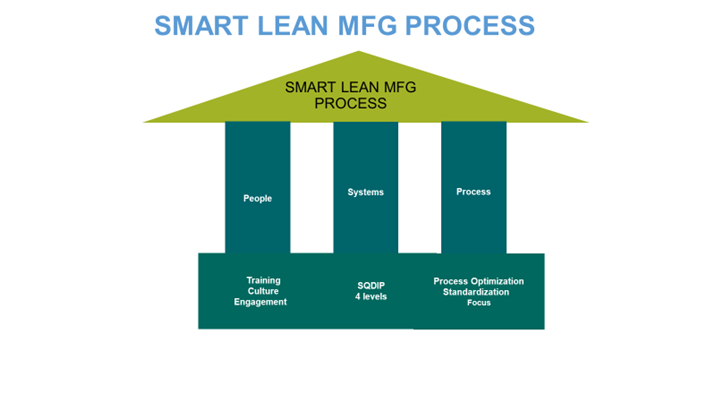“Tell me and I forget. Teach me and I will remember. Involve me and I will learn and support “
In today’s rapidly evolving global marketplace, numerous industries striving to satisfy increasing demands and stay competitive are turning to advanced production technologies as a means to achieve efficiency and innovation. Embracing these cutting-edge tools undoubtedly offers a promising pathway to success, but an often-overlooked challenge looms on the horizon: what happens when the initial excitement of technological implementation subsides? Who will be entrusted with operating and optimizing these advanced systems if the existing production workforce lacks the necessary training and skills? Furthermore, how can organizations address issues related to employee motivation and engagement, ensuring that their workforce is not merely present at the workplace but truly committed to driving impactful results?
The shift towards advanced production technologies, such as automation, artificial intelligence, and data analytics, has become a cornerstone of progress in various industries, enabling companies to streamline processes, enhance product quality, and expedite delivery times. However, the success of these technologies hinges on having a skilled and adaptable workforce capable of harnessing their full potential. As companies introduce these sophisticated systems, they must concurrently invest in comprehensive training programs to upskill their existing employees and cultivate a workforce proficient in managing and troubleshooting these technologies. By doing so, organizations can bridge the gap between technological prowess and human expertise, ensuring a seamless integration of innovation into daily operations.
To navigate this pivotal juncture effectively, companies can implement several strategic measures:
- Holistic Training Initiatives: Develop training programs that cover both technical aspects of technology operation and soft skills that encourage problem-solving, critical thinking, and adaptability. This comprehensive approach not only equips employees with the tools to interact with new technologies but also empowers them to tackle unexpected challenges that may arise.
- Continuous Learning Culture: Foster an environment where learning is not limited to a one-time event but an ongoing process. Encourage employees to continuously update their skills and knowledge through workshops, online courses, and skill-sharing platforms. This helps build a workforce that is agile and responsive to technological advancements.
- Incentive Structures: Create performance-based incentives that reward employees for their proficiency in utilizing advanced production technologies and achieving measurable outcomes. Such incentives can significantly boost motivation and commitment, aligning individual goals with the organization’s overall success.
- Employee Engagement Strategies: Cultivate a workplace culture that emphasizes the significance of each employee’s role in the organization’s success. Regular communication, feedback channels, and involvement in decision-making processes can enhance employee morale and commitment.
- Collaborative Teams: Encourage cross-functional collaboration by assembling teams with diverse skill sets, including both technology experts and seasoned production workers. This facilitates knowledge exchange and fosters a sense of collective responsibility for the successful integration of advanced technologies.
- Leadership Support: Ensure that leadership is fully invested in the technology implementation process and actively supports employee development. When leaders lead by example, demonstrating a commitment to learning and growth, employees are more likely to follow suit.
- Reskilling and Upskilling: Recognize that while some roles may change due to automation, there are ample opportunities for reskilling and upskilling employees for new roles that emerge with the technology implementation. This approach can mitigate fears of job displacement and foster a sense of security and motivation among the workforces. While the adoption of advanced production technologies holds immense promise for industries worldwide, the transformation’s true success lies in the convergence of technological innovation with a skilled, motivated, and engaged workforce. By strategically investing in training, fostering a culture of continuous learning, and prioritizing employee empowerment, organizations can ensure that the day after technological implementation is marked by sustained growth, increased competitiveness, and a resilient workforce poised to embrace future challenges.
While the adoption of advanced production technologies holds immense promise for industries worldwide, the transformation’s true success lies in the convergence of technological innovation with a skilled, motivated, and engaged workforce. By strategically investing in training, fostering a culture of continuous learning, and prioritizing employee empowerment, organizations can ensure that the day after technological implementation is marked by sustained growth, increased competitiveness, and a resilient workforce poised to embrace future challenges.
For more information on how we can help, contact us at: info@smartleanmfg.com

